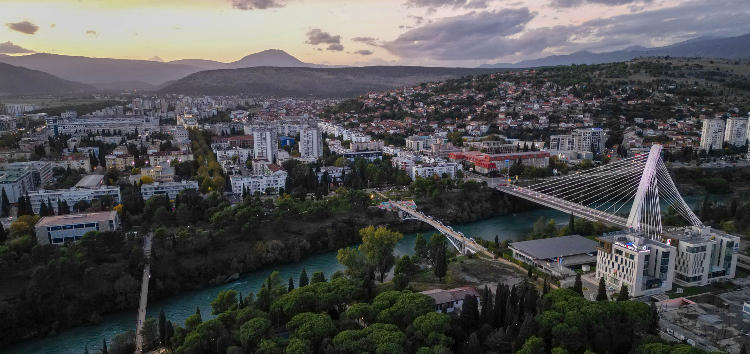The European Bank for Reconstruction and Development (EBRD) has made its first-ever energy efficiency investment in public buildings in Montenegro. A loan of up to €12 million has been provided to the Montenegrin government to finance various energy efficiency measures in three public hospital buildings. This significant project aims to enhance energy performance, environmental sustainability, and patient well-being in healthcare facilities.
The Ministry of Health will oversee the project, which includes investments in the Clinical Center in Podgorica, the General Hospital in Cetinje, and the General Hospital in Bijelo Polje. Improvements will include the installation of modern heating, ventilation, and air-conditioning (HVAC) systems, enhancements to building structures, and possibly the introduction of solar power technology.
The project is supported by the EU-EBRD Regional Energy Efficiency Programme for the Western Balkans (REEP), which provides a €2 million investment grant. Additionally, a €1 million technical assistance grant will fund project preparation and implementation.
These combined efforts aim to reduce energy consumption and greenhouse gas emissions by over 30%, significantly improving the energy efficiency of the hospital buildings. The renovations will also enhance air quality and thermal comfort levels, contributing to better patient outcomes and a reduction in healthcare-associated infections.
At the signing event, Novica Vuković, Montenegrin Minister of Finance, emphasized the importance of energy efficiency for both the economy and the environment:
“We are pleased that with our long-term strategic partner, the EBRD, we have signed the first loan arrangement for an energy efficiency project in the field of healthcare. Energy efficiency is one of the priorities of Montenegro’s energy policy and a key strategy to enhance energy security while supporting sustainable development. The Ministry of Finance will continue to support projects aimed at increasing energy efficiency to improve living conditions for our citizens.”
Oana Cristina Popa, EU Ambassador to Montenegro, highlighted the project’s alignment with the EU’s Green Agenda and Renovation Wave targets for energy efficiency and renewable energy in public buildings:
“We look forward to Montenegro’s continued commitment to an ambitious renewable energy and energy efficiency agenda.”
Sue Barrett, Director, Head of Infrastructure for Europe, Middle East, and Africa at the EBRD, emphasized the long-term impact of the investment:
“This project will bring substantial benefits to both the public and the environment by improving energy performance and sustainability. Enhanced structural integrity, better air quality, and increased comfort levels are crucial for healthcare facilities, and we expect this investment to be the first of many in Montenegro’s public buildings.”
Since Montenegro became an EBRD member in 2006, the Bank has invested over €800 million in 86 projects across various sectors. The EBRD’s ongoing priorities for the country include supporting competitiveness, the green transition, and integration into regional and global markets.
This investment marks a pivotal step toward enhancing the sustainability and efficiency of Montenegro’s public healthcare infrastructure while advancing the country’s environmental goals. The collaboration between the EBRD, the EU, and the Montenegrin government showcases a commitment to improving both public services and environmental protection through strategic partnerships.



